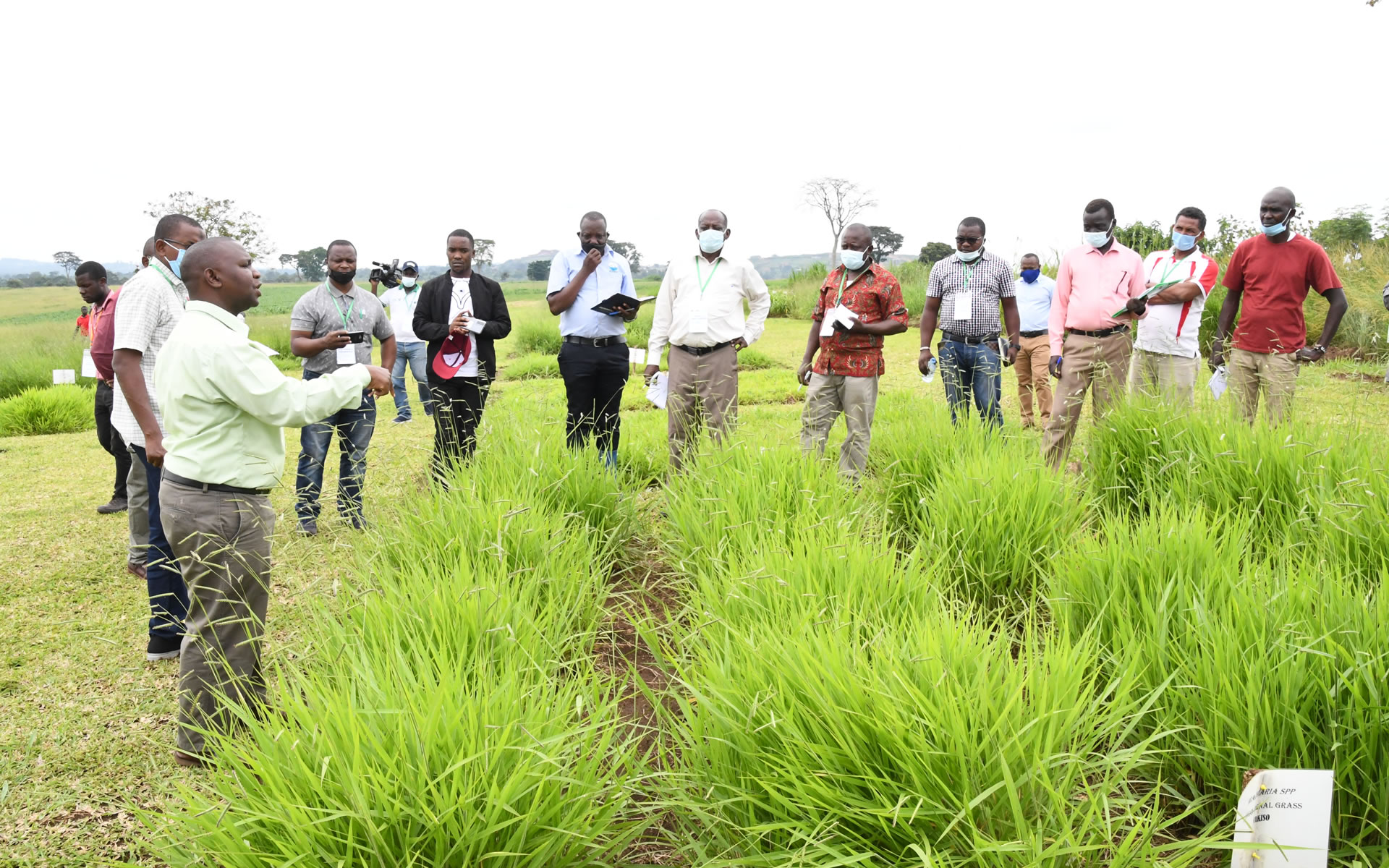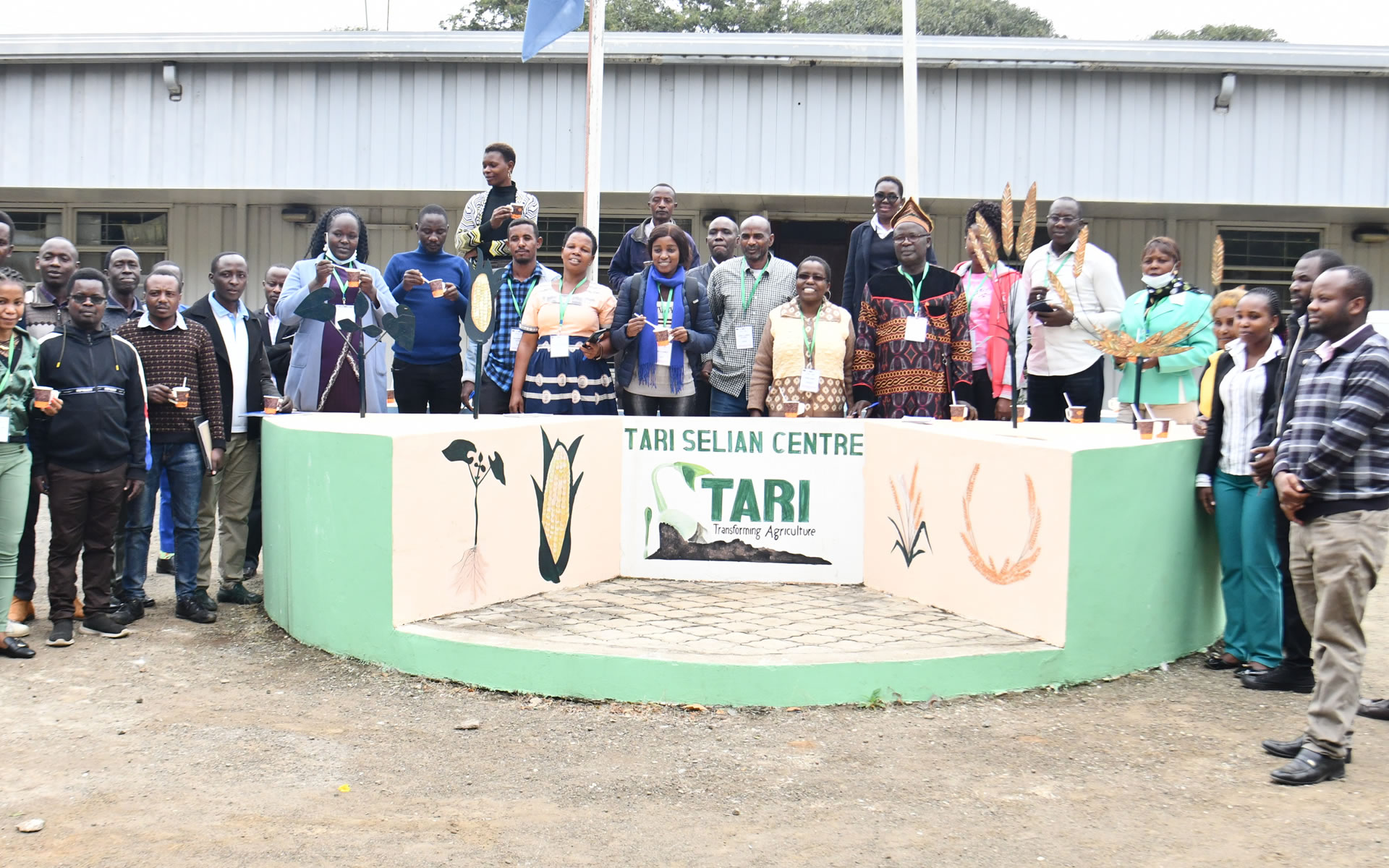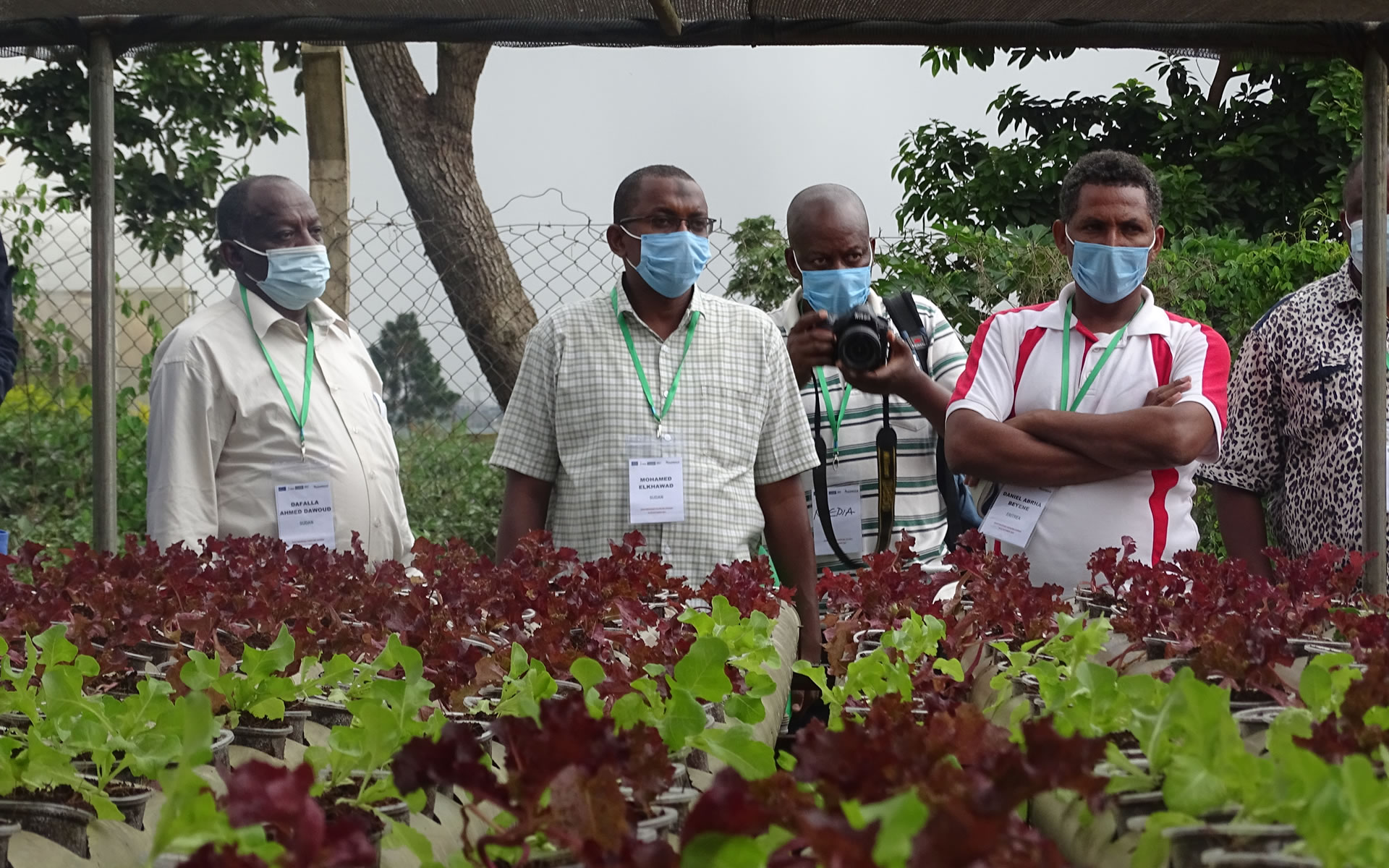Catalyzing cross-border transfer of agricultural technologies through benchmarking

BY BEN MOSES ILAKUT
ASARECA organized two successive benchmarking exercises on 18 to 22 October 2021 and 4-8 July, 2022, which were hosted by the National Agricultural Research Organization (NARO), Uganda (with 43 participants) and the Tanzania Agricultural Research Institute (TARI) (45 participants) respectively.
Enhancing skills
A total of 88 stakeholders mainly young scientists, farmer leaders and the private sector actors from all the 14 ASARECA member countries participated. The benchmarking exercises were aimed at enhancing the skills of the scientists in member countries through peer-to-peer learning as well as promoting knowledge sharing and exchange of innovations and technologies.
Through this initiative, ASARECA aided its constituents by: (i) increasing their skills and knowledge in technical areas where capacity gaps had been identified; (ii) enhancing their capacity to better execute their technical roles; (iii) facilitating mentorship; (iv) promoting coordination, and sharing of technologies, knowledge and information; (v) strengthening their capacity to implement climate relevant AR4D initiatives; and (vi) sensitising them on CSA best practices.

The benchmarking exercises entailed peer-to-peer learning and discussion sessions during visits to laboratories and open-field excursions to select sites, including Private Sector model facilities in both Uganda and Tanzania.
What they learnt
Key learning areas included: (i) laboratory diagnostic tools; (ii) bio-policy and bio-safety in agriculture; (iii) aflatoxin management; (iv) commercialisation of technologies (tissue culture, biotechnology and hydroponics technologies); (v) bio-fortification of banana through genetic engineering; (vi) livestock nutrition and embryo transfer, (vii) integrated pest management strategies; (viii) marketing and the role of the private sector in agricultural research for development; (ix) guidelines and approaches for CSA implementation; (x) overview of new knowledge and approaches in CSA; (xi) soil analysis; (xii) crop production using CSA technologies and practices; (xiii) artificial insemination (as a means of reducing animal pressure on land); (xiv) new farming approaches; (xv) modern strategies for livestock management to mitigate against impacts of climate change; and (xvi) choice of crops and crop varieties for diversified agro-ecological zones as a strategy for building resilience.

Demand hikes
Following the benchmarking exercises, the demand for the exchange of agricultural technologies has increased including demand for pasture (Cameroon); wheat germplasm (Cameroon, Uganda, Madagascar and Central African Republic); embryo transfer technologies (Republic of the Congo); fish feed formula (Democratic Republic of Congo and Central African Republic); Sorghum (Madagascar); and cashew nuts (Uganda).
Researchers adopt best practices
Besides, researchers are directly implementing several initiatives in their countries. These include: Transfer of wheat germplasm from Kenya and Sudan to Cameroon, transfer of fish from Uganda to Central African Republic, training of technicians in good laboratory management practices in the Democratic Republic of Congo, improved post-harvest handling practices for aflatoxin management in Uganda, knowledge sharing meetings in Uganda, production of bio fertilisers from bat droppings in Republic of the Congo (RoC), training of trainers on good agronomic practices and Climate Smart Agriculture (CSA) practices in Uganda, implementation of CSA practices such as biogas production in Uganda, and acquisition of machinery such as a tractor from Uganda to Burundi, and maize hand threshers from Uganda to Cameroon.
INERA-DRC updates safety measures for key laboratories
During the benchmarking exercise in NARO— Uganda, particularly after visiting laboratory facilities at NACRRI Namulonge, participants from the National Agricultural Study and Research Institute (INERA), in the Democratic Republic of Congo noticed that negligence in application of hygiene and safety measures compromises research outcomes at their laboratories in Mvuazi.
While INERA was in the process of renovating their research laboratories, including equipping its soil analysis laboratory in Mvuazi, the benchmarking exercise came in handy. With lessons learnt from NACRRI, the management organized training of technicians on hygiene and safety measures in the soil and the plant laboratory of Mvuazi in February 2022.
They reviewed the various analytical methods in use in this laboratory, possible risks and created awareness of the various measures to avoid risks. Some of the security measures that were adopted include restricted access to laboratories, adherence to health and safety measures, use of laboratory gear such as coats, gloves, and protective goggles, and labelling spaces with appropriate notices. The INERA management plans to rollout this training to all research facilities.
